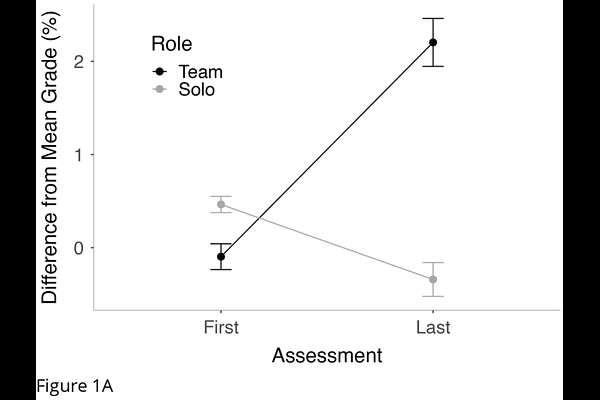Study buddy learning is associated with academic success in undergraduate science courses

Study buddy learning is associated with academic success in undergraduate science courses
Jones, A.; Reznik, G.; Hossain, A. R.; Dudarev, V.; Hui, B.; Belleville, P.; Williams, W.; Fussner-Dupas, E.; Enns, J. T.
AbstractThis study reports on the outcomes of a formal peer-learning program for undergraduate science students. We implemented a cohort-based study buddy program in which high-scoring students (mentors) and lower-scoring peers (proteges) were invited to form study groups based on their first assessment scores in a given course. We then compared the performance of participants versus non-participants on subsequent assessments, while examining separately the effects for mentors and proteges. Results showed similar participation benefits for students in both mentor and protege roles. These findings emphasize the value of reducing barriers to collaborative learning in higher education and highlight the study buddy program as a cost-effective and scalable approach to enhance students\' educational experiences.